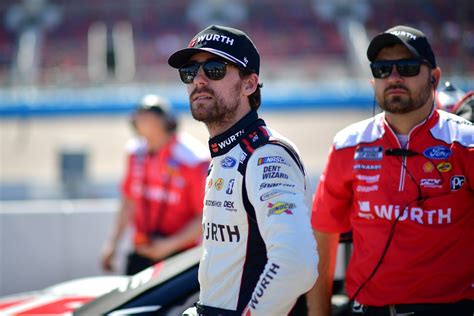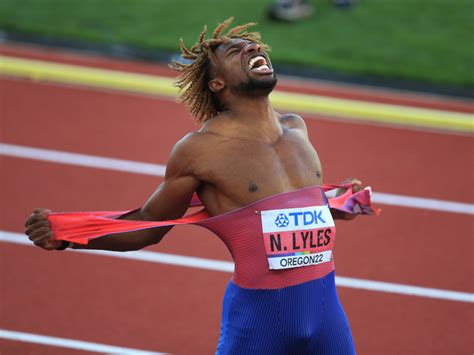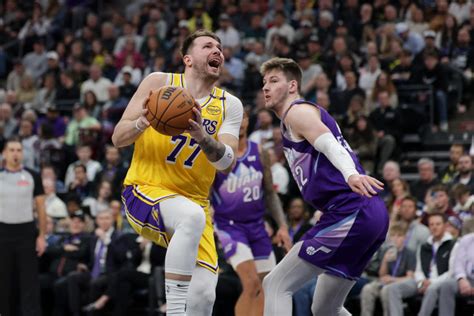
Stephen Jackson recently recounted a particularly intense scrimmage during Michael Jordan’s tenure with the Charlotte Bobcats, describing the competitive fire that Jordan brought even in his later years, stating, “He s***ted on us.” The incident, as Jackson recalls, involved Jordan challenging the team, leading to a highly competitive and ultimately demoralizing experience for the Bobcats players.
Stephen Jackson’s recent recollection of Michael Jordan’s competitive fervor during his time with the Charlotte Bobcats has shed light on the intensity Jordan brought to the team, even in his later years. Jackson described a scrimmage in which Jordan, in a manner characteristic of his legendary competitiveness, dominated the Bobcats players, using strong language to emphasize the point: “He s***ted on us.” The incident, as Jackson detailed, stemmed from Jordan challenging the team, resulting in a humbling experience for the players. This account provides further insight into Jordan’s relentless drive, a trait that defined his career and influenced those around him, regardless of the setting.
Jackson, speaking on a recent podcast, elaborated on the events leading up to the now-infamous scrimmage. According to Jackson, Jordan, who was a part-owner of the Bobcats at the time, felt the team was lacking a certain edge. He believed the players weren’t taking their training seriously enough and that their competitive spirit was flagging. Jordan, never one to shy away from a challenge, decided to take matters into his own hands, challenging the Bobcats players to a scrimmage. This wasn’t just a friendly run; it was a statement.
“MJ came to practice one day and was just talking s***,” Jackson recalled. “He was like, ‘Y’all soft. Y’all ain’t got that dog in you.'” Jordan’s words were a direct challenge, a gauntlet thrown down to a team that, at the time, was struggling to find its identity and competitive fire. The Bobcats, a relatively young team with a mix of veterans and up-and-coming players, accepted the challenge. They likely underestimated the intensity Jordan still possessed, even though he was past his prime playing years.
The scrimmage itself quickly turned into a one-sided affair. Jordan, despite being in his early 40s, showcased flashes of his former brilliance. He relentlessly attacked the basket, displaying the same array of offensive moves that made him a legend. He hit fadeaway jumpers, drove past defenders, and relentlessly challenged every shot on the defensive end. Jackson remembers Jordan calling out the players individually, further intensifying the competitive atmosphere. “He was calling out names, talking trash, doing everything MJ does,” Jackson said.
The impact of Jordan’s performance was profound. According to Jackson, the Bobcats players were left demoralized and humbled. They had been thoroughly outplayed by a man who was supposed to be past his prime. The experience served as a stark reminder of the level of dedication and competitive fire required to succeed in the NBA. “He s***ted on us. Straight up. We couldn’t do nothing with him,” Jackson admitted.
Beyond the humiliation, the scrimmage also provided a valuable lesson for the Bobcats players. They witnessed firsthand the intensity and determination that fueled Jordan’s success. The experience, while painful, served as a wake-up call, highlighting the importance of hard work, dedication, and a relentless competitive spirit. Some players reportedly took Jordan’s challenge to heart, using it as motivation to improve their game and approach the sport with a newfound level of intensity.
This incident, as recounted by Jackson, is just one example of Jordan’s unwavering commitment to excellence. Even in his post-playing career, he remained fiercely competitive, always pushing himself and those around him to be their best. His time with the Bobcats, though not marked by on-court heroics, was still impactful, as he instilled a winning mentality and a culture of competition.
The story also underscores the unique challenges and expectations that come with being associated with Michael Jordan. Players who shared the court with him, whether as teammates or opponents, were constantly measured against his legendary standards. This pressure could be both a burden and a motivator, pushing players to elevate their game while also creating a sense of intimidation.
This particular episode with the Bobcats encapsulates Jordan’s complex legacy. It’s a story of unparalleled talent, unwavering competitiveness, and a relentless pursuit of excellence. It also offers a glimpse into the often-intense environment that surrounded him, where even casual scrimmages could become defining moments. Stephen Jackson’s candid recollection provides a valuable insight into the mindset of one of the greatest athletes of all time and the impact he had on those who crossed his path.
The Bobcats team during Jordan’s tenure as part-owner was a mix of young talent and seasoned veterans, attempting to build a competitive roster in the Eastern Conference. Players like Gerald Wallace, Raymond Felton, and Emeka Okafor were key figures alongside Stephen Jackson. Despite these efforts, the Bobcats struggled to achieve consistent success, often finding themselves in the lottery and undergoing frequent roster changes. The team’s struggles highlighted the difficulty of building a winning franchise in a league dominated by established powerhouses. The presence of Michael Jordan, while providing a certain level of prestige, didn’t immediately translate into on-court success, underscoring the complexities of team building and the importance of a cohesive roster.
The anecdote shared by Jackson underscores the difference between being a successful player and a successful team owner or executive. Jordan’s playing career was characterized by unparalleled individual brilliance and team success, but his tenure with the Bobcats was marked by challenges and shortcomings. This highlights the diverse skill sets required for different roles within a basketball organization. While Jordan’s competitive drive and basketball acumen were undeniable, building a winning team from the front office requires a different set of skills, including player evaluation, strategic planning, and effective leadership.
The intensity that Jordan brought to the scrimmage, as described by Jackson, is a hallmark of his legendary career. From his early days with the Chicago Bulls to his later years with the Washington Wizards, Jordan was known for his unwavering focus and relentless pursuit of victory. He demanded the best from himself and his teammates, pushing them to reach their full potential. This demanding approach, while sometimes controversial, was ultimately a key factor in his success. He created a culture of accountability and excellence, inspiring those around him to strive for greatness.
Furthermore, the story reflects the broader impact of Jordan’s competitive spirit on the NBA landscape. He set a new standard for excellence, raising the bar for future generations of players. His dedication, work ethic, and unwavering belief in himself inspired countless athletes to pursue their dreams and push their limits. Jordan’s influence extends far beyond the basketball court, shaping the culture of the sport and inspiring individuals in all walks of life.
The “s***ted on us” comment is a raw and unfiltered expression of the impact Jordan had on the Bobcats players during that scrimmage. It conveys the sheer dominance and demoralizing effect of Jordan’s performance. While the language is strong, it accurately reflects the intensity of the moment and the profound impression Jordan left on the team. The use of such language also adds a layer of authenticity to Jackson’s account, making it all the more compelling.
In conclusion, Stephen Jackson’s recollection of Michael Jordan’s dominance during a Bobcats scrimmage provides a valuable glimpse into the mindset of one of the greatest athletes of all time. It highlights Jordan’s unwavering competitiveness, his relentless pursuit of excellence, and his profound impact on those around him. The story also underscores the challenges of building a winning team and the diverse skill sets required for success in different roles within a basketball organization. Ultimately, the anecdote serves as a reminder of Jordan’s enduring legacy and his lasting influence on the sport of basketball. The incident, while a humbling experience for the Bobcats players, serves as a testament to Jordan’s unparalleled talent and his unwavering commitment to excellence.
The incident continues to resonate because it speaks to the core of Jordan’s persona. It’s not just about basketball skill; it’s about a mentality, a burning desire to win that permeates every aspect of his life. This mentality is what separates the good players from the legends, and it’s what Jordan exemplified throughout his career. The fact that he could still summon that intensity, even in a casual scrimmage as a team owner, is a testament to his unwavering competitive spirit.
Moreover, Jackson’s retelling highlights the often-unseen side of professional sports. While fans see the games and the highlights, they often don’t witness the grueling practices, the intense competition within the team, and the mental fortitude required to succeed at the highest level. This story provides a rare glimpse into that world, showcasing the demanding standards and the relentless pursuit of excellence that define the NBA.
This account also raises questions about the role of team owners and their involvement in team practices. While Jordan’s intention was likely to motivate and inspire his players, his actions could be interpreted as undermining the authority of the coaching staff. The line between providing constructive criticism and exerting undue influence can be blurry, and this incident highlights the challenges that team owners face in navigating their relationships with players and coaches.
Furthermore, the story serves as a reminder of the importance of leadership, both on and off the court. Jordan’s presence, even in a non-playing role, undoubtedly had an impact on the Bobcats organization. His experience, knowledge, and competitive spirit could have been valuable assets in shaping the team’s culture and developing its players. However, effective leadership requires more than just talent and experience; it also requires empathy, communication skills, and the ability to inspire others.
Ultimately, the anecdote shared by Stephen Jackson is a complex and multifaceted story that offers valuable insights into the world of professional basketball, the mindset of a legendary athlete, and the challenges of building a winning team. It’s a story that continues to resonate because it speaks to the universal themes of competition, excellence, and the pursuit of greatness. The details are striking, offering a raw, unfiltered snapshot of a moment in time that encapsulates so much about Jordan’s impact and persona.
Even years later, the story continues to circulate and captivate fans, demonstrating the enduring power of Michael Jordan’s legacy. His name remains synonymous with excellence, and his influence continues to shape the sport of basketball. This anecdote, while just one small piece of the larger Jordan narrative, provides a valuable glimpse into the qualities that made him a legend.
Frequently Asked Questions (FAQ)
1. What exactly happened during the scrimmage between Michael Jordan and the Charlotte Bobcats, as recalled by Stephen Jackson?
According to Stephen Jackson, Michael Jordan, who was part-owner of the Charlotte Bobcats at the time, challenged the team to a scrimmage after feeling they lacked competitive intensity. Despite being in his early 40s, Jordan dominated the scrimmage, showcasing his skills and intensely calling out players. Jackson described the experience as Jordan “s***ting on us,” indicating a complete and demoralizing defeat for the Bobcats players.
2. Why did Michael Jordan challenge the Charlotte Bobcats to a scrimmage?
Michael Jordan challenged the Bobcats because he felt they were “soft” and lacking the competitive spirit needed to succeed. He believed the team wasn’t taking their training seriously enough. As Jackson recalled, Jordan wanted to instill a winning mentality and demonstrate the level of intensity required to compete in the NBA.
3. What was Stephen Jackson’s perspective on Michael Jordan’s performance during the scrimmage?
Stephen Jackson’s perspective was one of awe and humility. He admitted that Jordan completely outplayed the Bobcats players, even though Jordan was past his prime. Jackson’s quote, “He s***ted on us,” emphasizes the profound impact Jordan’s performance had on the team. He acknowledged the experience as a valuable lesson in dedication and competitive fire.
4. What impact did the scrimmage have on the Charlotte Bobcats players, according to Jackson?
According to Jackson, the scrimmage had a demoralizing yet motivational impact on the Bobcats players. While they were initially humbled by Jordan’s dominance, the experience served as a wake-up call, highlighting the importance of hard work, dedication, and a relentless competitive spirit. Some players reportedly used the experience as motivation to improve their game.
5. How does this anecdote fit into Michael Jordan’s overall legacy and influence on basketball?
This anecdote underscores Jordan’s unwavering commitment to excellence and his relentless competitive drive, even in his post-playing career. It showcases his influence on the Bobcats, instilling a winning mentality and a culture of competition. The story also highlights the high standards Jordan set for himself and others, solidifying his legacy as one of the greatest athletes of all time and his lasting influence on the sport. It shows his impact transcended playing and entered a level of mentorship, albeit a very intense version.
Expanded Context and In-Depth Analysis
The incident with the Charlotte Bobcats, as recounted by Stephen Jackson, serves as a powerful illustration of Michael Jordan’s enduring competitive spirit and his relentless pursuit of excellence. It offers a glimpse into the mindset of a legendary athlete and the impact he had on those around him, even in his post-playing career.
To fully appreciate the significance of this anecdote, it’s important to consider the context of Jordan’s involvement with the Bobcats and the state of the team at the time. Jordan became a minority owner of the Bobcats in 2006 and later became the majority owner in 2010. His goal was to build a winning franchise in Charlotte, but the team struggled to achieve consistent success during his tenure.
The Bobcats team that Jordan challenged to a scrimmage was a mix of young talent and seasoned veterans. Players like Gerald Wallace, Raymond Felton, and Emeka Okafor were key figures on the roster. However, the team lacked a clear identity and often struggled to compete against the established powerhouses in the Eastern Conference.
It was against this backdrop that Jordan decided to challenge the Bobcats to a scrimmage. He felt that the team was lacking the necessary intensity and that the players weren’t taking their training seriously enough. As a result, he took matters into his own hands, demonstrating the level of dedication and competitive fire required to succeed in the NBA.
The scrimmage itself quickly turned into a one-sided affair, with Jordan showcasing flashes of his former brilliance. Despite being in his early 40s, he relentlessly attacked the basket, displaying the same array of offensive moves that made him a legend. He hit fadeaway jumpers, drove past defenders, and relentlessly challenged every shot on the defensive end.
Stephen Jackson’s recollection of the event paints a vivid picture of Jordan’s dominance and the demoralizing effect it had on the Bobcats players. The quote, “He s***ted on us,” is a raw and unfiltered expression of the impact Jordan had on the team. It conveys the sheer dominance and demoralizing effect of Jordan’s performance.
However, the scrimmage also served as a valuable lesson for the Bobcats players. They witnessed firsthand the intensity and determination that fueled Jordan’s success. The experience, while painful, served as a wake-up call, highlighting the importance of hard work, dedication, and a relentless competitive spirit.
Beyond the immediate impact on the Bobcats players, the incident also underscores the broader influence of Jordan’s competitive spirit on the NBA landscape. He set a new standard for excellence, raising the bar for future generations of players. His dedication, work ethic, and unwavering belief in himself inspired countless athletes to pursue their dreams and push their limits.
The anecdote also raises questions about the role of team owners and their involvement in team practices. While Jordan’s intention was likely to motivate and inspire his players, his actions could be interpreted as undermining the authority of the coaching staff. The line between providing constructive criticism and exerting undue influence can be blurry, and this incident highlights the challenges that team owners face in navigating their relationships with players and coaches.
Despite the potential for controversy, the story of Jordan’s dominance during the Bobcats scrimmage has resonated with fans and media alike. It offers a rare glimpse into the mindset of a legendary athlete and the qualities that made him a legend. It also serves as a reminder of the importance of competition, excellence, and the pursuit of greatness.
The lasting impact of the incident can be attributed to several factors. First, it provides a concrete example of Jordan’s unwavering commitment to excellence. Even in his post-playing career, he remained fiercely competitive, always pushing himself and those around him to be their best.
Second, the story highlights the power of example. Jordan didn’t just tell the Bobcats players to work harder; he showed them what hard work and dedication looked like. By dominating the scrimmage, he demonstrated the level of intensity required to succeed in the NBA.
Third, the anecdote underscores the importance of leadership. Jordan’s presence, even in a non-playing role, had a profound impact on the Bobcats organization. His experience, knowledge, and competitive spirit could have been valuable assets in shaping the team’s culture and developing its players.
Finally, the story resonates because it speaks to the universal themes of competition, excellence, and the pursuit of greatness. These are values that are admired and aspired to by people in all walks of life. Jordan’s example serves as an inspiration to those who strive to achieve their full potential.
The anecdote shared by Stephen Jackson is a complex and multifaceted story that offers valuable insights into the world of professional basketball, the mindset of a legendary athlete, and the challenges of building a winning team. It’s a story that continues to resonate because it speaks to the universal themes of competition, excellence, and the pursuit of greatness.
The aftermath of this particular scrimmage, while not leading to immediate championship success for the Bobcats, likely played a part in shaping the mindset of some of the players. It served as a tangible reminder of the gap between their current level and the level of intensity and skill required to reach the pinnacle of the sport. Whether they embraced the challenge and used it as motivation or felt discouraged by the experience likely varied from player to player.
The story also highlights the complexities of Jordan’s transition from being a player to an owner. His playing career was marked by unparalleled success, but his tenure as an owner was more challenging. Building a winning team requires a different set of skills than playing the game at a high level. Jordan’s competitive nature, which served him so well as a player, may have sometimes been a hindrance in his role as an owner.
The “s***ted on us” quote, while arguably unprofessional language, is revealing. It highlights the stark contrast between Jordan’s level of play and the Bobcats players’ level at that moment. It’s a blunt assessment that captures the essence of the scrimmage and the impact it had on the team. The honesty and directness of the quote are part of what makes the story so compelling.
The incident is a reminder that even the greatest players in the world have to adapt and evolve as they transition into different roles. Jordan’s experience with the Bobcats demonstrates that success on the court doesn’t always translate into success in the front office. Building a winning team requires a holistic approach, encompassing player development, coaching, scouting, and strategic planning.
The story also highlights the importance of leadership, both on and off the court. Jordan’s presence, even in a non-playing role, undoubtedly had an impact on the Bobcats organization. However, effective leadership requires more than just talent and experience; it also requires empathy, communication skills, and the ability to inspire others.
The incident, while not a pivotal moment in NBA history, provides a valuable glimpse into the dynamics of a professional basketball team and the challenges of building a winning franchise. It’s a story that continues to resonate because it speaks to the universal themes of competition, excellence, and the pursuit of greatness. The anecdote shared by Stephen Jackson serves as a reminder of Jordan’s enduring legacy and his lasting influence on the sport of basketball. His competitive spirit remains a benchmark for athletes across all sports, and his story continues to inspire generations of fans.
Furthermore, analyzing this event through a modern lens, where player empowerment and the athlete voice are more prominent, adds another layer of consideration. A similar scenario occurring today might be met with a different reaction from the players. There could be concerns about the owner’s overreach, potentially leading to friction between players, the coaching staff, and the management. This highlights how the NBA landscape has evolved, placing more emphasis on collaboration and shared decision-making.
This incident also brings to light the psychological aspects of competitive sports. The mental impact of being so thoroughly outplayed by someone past their prime could have lasting effects on the players’ confidence. It underscores the importance of sports psychology and the need for athletes to develop mental resilience to overcome such setbacks. The ability to bounce back from adversity is a crucial trait for success in professional sports, and this scrimmage likely tested the mental fortitude of the Bobcats players.
In conclusion, Stephen Jackson’s recounting of Michael Jordan’s dominance during the Bobcats scrimmage is more than just a funny anecdote. It’s a story rich with context, offering insights into Jordan’s relentless competitiveness, the challenges of team building, and the evolving dynamics of the NBA. It serves as a reminder of Jordan’s enduring legacy and the impact he had on the sport of basketball, even in his post-playing career. It’s a multifaceted story that continues to resonate because it speaks to the universal themes of competition, excellence, and the pursuit of greatness.









